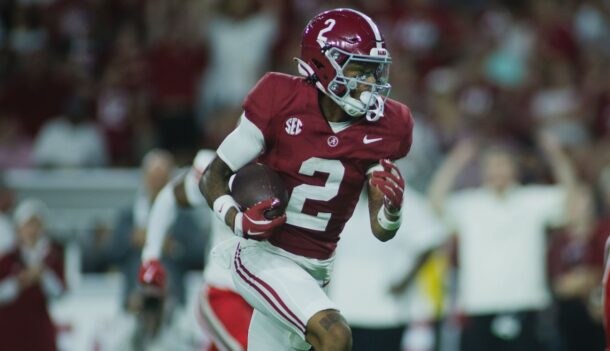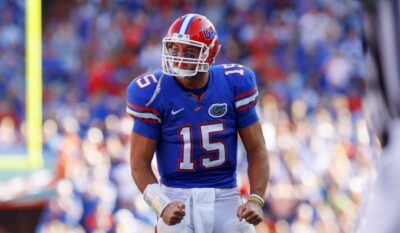Impactful Coaching Moves: The best and worst decisions of Week 12
By Ethan Levine
Published:
Here are the best and worst coaching decisions from around the SEC in Week 12:
GOOD MOVE
South Carolina faced a situation many teams face throughout the year — trailing by seven and on the receiving end of a punt with less than a minute left in the game. Some teams try to set up a promising return to give their offense as short a field as possible for a potential game-tying drive; others elect to sell out for a potential block hoping to make a game-changing play in the most important moment of the game.
Often times the teams that aggressively pursue a block are left with poor field position if they can’t get a hand on the ball, making it a riskier move if playing the odds. However, if the risk pays off and that team is indeed able to block the punt, they almost always turn that play into points.
That’s exactly what happened for Steve Spurrier and the Gamecocks on Saturday against Florida. South Carolina took a risk and sold out to try and block UF’s punt, trailing by seven in the final minute of the game. Carlton Heard got to Florida punter Kyle Christy and blocked the kick, setting up the Gamecocks at the Gators 34 yard line with 39 seconds remaining.
It would only take South Carolina 27 seconds to score the game-tying touchdown, and the Gamecocks would go on to win in overtime. Had Heard failed to get a hand on the punt, South Carolina had no return set up and would likely have had to drive the length of the field to get in the end zone. Instead they relied on a short field and a huge momentum boost to tie the game and eventually win it in the extra session.
Spurrier’s risk came with a major reward, earning it a nod as one of the best coaching decisions of Week 12.
BAD MOVE
LSU head coach Les Miles left many Tiger fans frustrated by sticking with quarterback Anthony Jennings throughout the Tigers’ 17-0 loss to Arkansas in Week 12, rather than turning to Brandon Harris to try and jumpstart the offense.
Following LSU’s loss to Alabama in Week 11, during which Jennings completed just 8 of 26 passes, Miles said Harris would be able to “show his wares and play some more” before the end of the season. However, Harris never saw the field against Arkansas, even as Jennings continued to fail to stretch the field through the vertical passing game.
Jennings completed 12 of 22 passes, which is actually an improvement from his 47 percent completion rate this season, but the Tigers mustered just 87 yards on those 12 completions on their way to being shut out for the first time since 2011.
By the fourth quarter of a three-score game, Miles should have turned to Harris to finish the job. The freshman might have ignited a rally by a Tigers offense lacking explosiveness on Saturday, or he might have played as flat as Jennings did. Either way, he wasn’t going to play worse than Jennings, and if the former five-star recruit truly is the future of this offense any reps are valuable to his development.
WORST MOVE
Mississippi State entered Week 12 with the SEC’s No. 1 scoring offense, due in large part to one of the SEC’s best rushing attacks this season. However, head coach Dan Mullen got away from the Bulldogs’ bread and butter on offense in Saturday’s showdown with Alabama, and it cost MSU a chance at a perfect season in 2014.
Quarterback Dak Prescott and tailback Josh Robinson have worked brilliantly in tandem as the leaders of the Bulldogs rushing attack this year, but Mullen’s play-calling limited both players from making an impact in Saturday’s game.
Robinson only carried the ball 12 times, the fewest carries he’s received in an SEC game this season, and most of his carries came on downhill runs in MSU’s slow, deliberate approach on offense. Prescott carried the ball 22 times, but most of those carries were on poorly designed runs that rarely utilized the threatening combination of Prescott and Robinson in the backfield.
Alabama has struggled against tempo offenses this season, yet MSU never went with tempo, nor did it ever try attacking the perimeter in the run game. Instead, either Prescott or Robinson (mostly Prescott) were called upon to run with power between the tackles, making Alabama’s job of stopping the run much easier.
Mullen should have stuck with what has worked for Mississippi State this season, mixing up looks in the run game while allowing Prescott and Robinson to play off one another more in read-option and play-action situations. The slow, downhill approach made Mississippi State’s offense predictable and easy to stop, and it wasted its two biggest threats on offense in the team’s biggest game of the year.
Many experts thought Nick Saban would out-coach Mullen in a high stakes game in November, and in hindsight those experts were spot on.
A former newspaper reporter who has roamed the southeastern United States for years covering football and eating way too many barbecue ribs, if there is such a thing.







